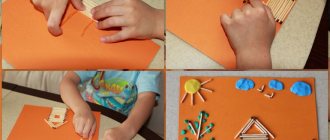Methods for establishing discipline
To begin with, you should work on yourself, building a line of behavior in order to establish authority. The style of communication with children presupposes strictness in matters of principle, affection in all situations and kindness, humor, but without sarcasm, tact, but frankness, and responsiveness. The main thing is a sincere interest in the personality of each child. There are no bad children, there are unfortunate ones...
The ultimate goal of the teacher is to arouse interest in himself, a desire to communicate on the part of children, obey orders with pleasure, readiness to fulfill a request, earn approval, a gentle look, a word, a gesture. Your stern look and word when discipline is violated should not cause anger, resentment, dissatisfaction, but shame for your actions and the desire to immediately correct the situation.
In your situation, colleague, leaders need to be organized and led. Such guys are really looking forward to recognition of their leadership qualities, so delegate authority to leaders and entrust them with discipline duty. I think it’s worth having a conversation with the group on the topic of what is bad and good, together define and write the rules by setting up a special stand, where there are also photos of children and daily marks on behavior in the form of stars of three colors.
Red – bad, yellow – normal, green – excellent. Every day, do not forget to give ratings together with the children, let them determine which star they deserve. Don't forget about incentives and advances. If a child is too deeply offended by well-deserved red stars, reward him with yellow or even green, but explain your decision to all children. Don't allow injustice!
And to attract attention and eradicate outbreaks of disobedience during classes, there is the following technique: bell, tambourine, whistle, pipe. Announce that you will check who is the most attentive and, at the signal of a whistle or tambourine, will fall silent and look at the teacher. Train constantly until the reflex is developed.
You can complicate the task: as soon as the signal sounds, everyone stops and repeats the movements of finger gymnastics or just exercises after the teacher. The bell rings: everyone watches and repeats who is great and deserves praise or a star. And so on every day until you reach automaticity. Warn children that you will signal unexpectedly.
Other techniques to stop negative manifestations
In case of isolated manifestations of violations of discipline during important security moments, the following measures can be taken against the “troublemaker,” especially if the child’s actions are, to put it mildly, inadequate:
- Ignoring or minimal attention to the offender;
- Focused gaze into the child's eyes without anger or condemnation, calmly but intently, as if we were stopping with our gaze;
- Addressing the child in a specially intoned voice: in some special tone we say something like “Look at me, please,” in a lowered, changed voice;
- We abruptly stop any activity and say: “We’ll wait until Petya can join us”;
- A non-standard question or gesture (affectionate) that will distract the child;
- Voicing his state: “You hate me, you are very angry with Petya, you are tired and angry”;
- Praise often stops you: “You kick your legs so beautifully, how do you do it?”, but without mockery, in a friendly way, without laughter;
- You can sit on a chair to think, but not in a corner.
In principle, these methods and techniques should be enough; at the end of the article I would like to share some tips on good teaching aids:
- “Planning the organized educational activities of a teacher with children of the preparatory group: technological maps for every day according to the program “From birth to school”, ed. N. E. Veraksy, T. S. Komarova, M. A. Vasilyeva. December-February";
- “Organization of children’s activities during a walk. Preparatory group";
- “How to help an autistic child. A book for parents. Toolkit";
- “Special offer to top up your personal account + participation in the offline webinar “How to organize the work activity of a preschooler?”
I really hope that my young colleague will take advantage of the ideas I proposed and be able to cope with negative manifestations in the children's team. If you find my article interesting, share it with your friends, and if you want to constantly read the materials, subscribe to the news.
Sincerely, Tatyana Sukhikh! Till tomorrow!




